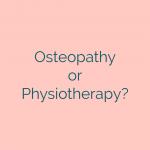TMJ (Temporomandibular Joint & Muscle Disorders)
What is TMJ disorder?
The temporomandibular joint or TMJ connects the lower part of the jaw (the mandible) to the side of your head (temporal bone) and is responsible for it's wide range of movements; these include fowards, backwards, up, down and side to side. These movements allow everyday actions of the jaw that include speaking, eating, chewing and swallowing. Temporomandibular joint diseases can cause pain in the area of the jaw joint and associated muscles. Both or just one of the joints may be affected. Pain can cause difficulty to a persons ability to speak, eat, chew, swallow and even breathe.
The National Institute of Dental and Craniofacial Research classifies TMJ by the following:
-
Myofascial pain. This is the most common form of TMJ. It results in discomfort or pain in the fascia (connective tissue covering the muscles) and muscles that control jaw, neck and shoulder function.
-
Internal derangement of the joint. This means a dislocated jaw or displaced disk, (cushion of cartilage between the head of the jaw bone and the skull), or injury to the condyle (the rounded end of the jaw bone that articulates with the temporal skull bone).
-
Degenerative joint disease. This includes osteoarthritis or rheumatoid arthritis in the jaw joint.
You can have one or more of these conditions at the same time.
Why does TMJ occur?
A form of trauma to the jaw such as a dislocation or break is one reason for a person struggling with TMJ disorder. However, it is often difficult to originally diagnose the cause of TMJ as for many, symptoms start with no obvious reason.
Symptoms
- Being unable to open the mouth comfortably
- Clicking/popping/grating sounds in the jaw joint
- Locking of the jaw when attempting to open the mouth
- Headaches
- Tinnitus
- A bite that feel uncomfortable or “off”
- Neck/shoulder/back pain
- Dull/aching pain in jaw joint
Self care
Self care practices that may help ease your symptoms can include:
- gentle jaw stretches
- bringing in techniques to help encourage relaxation and reduce stress
- eating soft foods
How can TMJ be treated?
For some, hands-on treatment is effective to manage and ease the symptoms of TMJ. A specialised massage with a trained practitioner that targets the neck,back,shoulders and the muscles of the face can be effective. Acupuncture has also been reported to be helpful.







